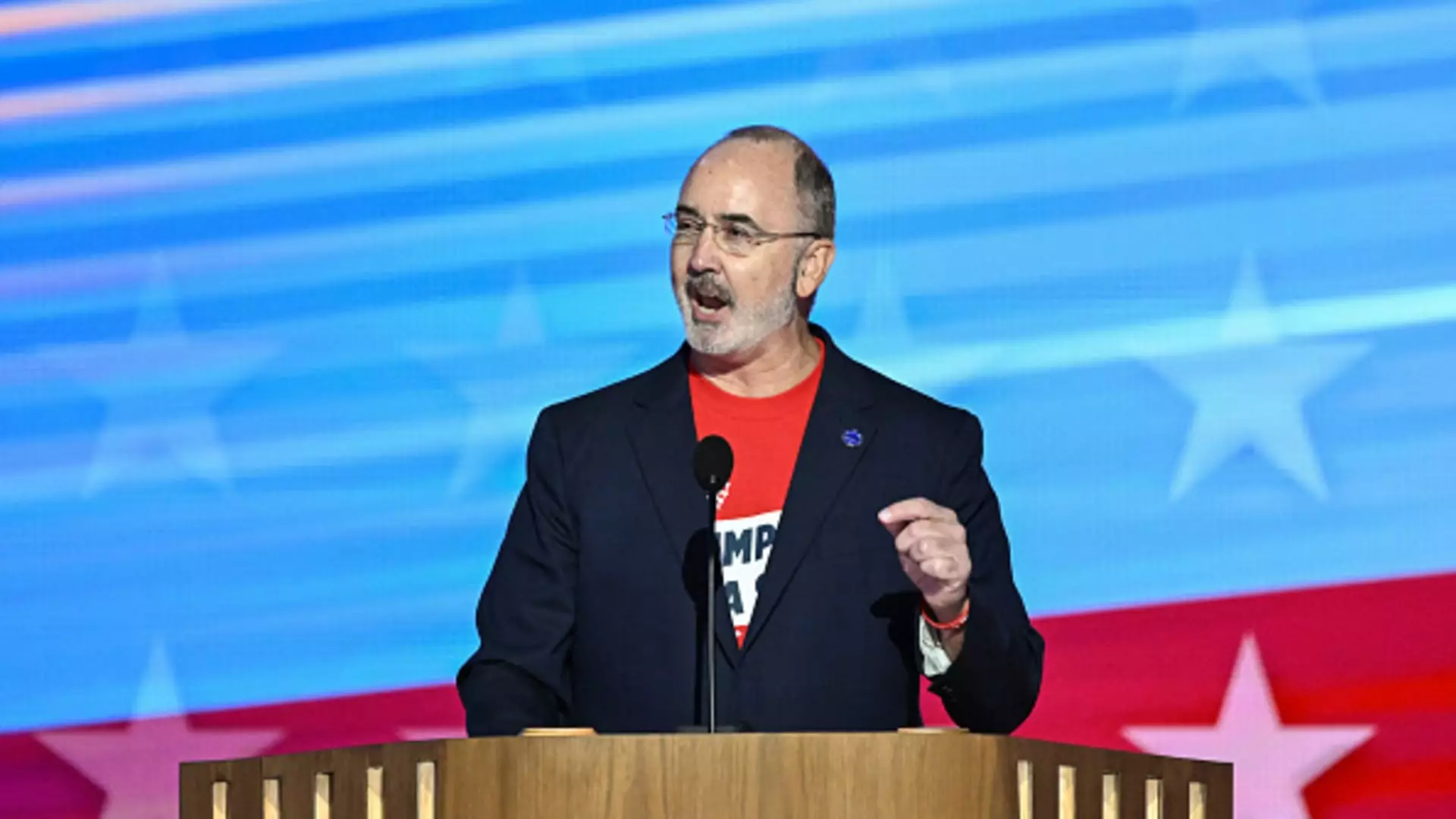In the tempestuous arena of American politics, where the lines between allies and adversaries often blur, the recent alliance between UAW President Shawn Fain and Donald Trump over tariffs stands out as particularly perplexing. Fain, who had vociferously criticized Trump during his ascent to power, finds himself in an endorsement role of the President’s tariffs—levies designed at protecting domestic jobs amidst the perceived chaos of globalization. This surprising turn not only challenges our understanding of political allegiance but underscores the complications inherent in labor relations and trade policies.
Tariffs have become a contentious issue in their own right, often regarded as double-edged swords that can either promote job growth by safeguarding American industries or escalate prices for consumers and disrupt established markets. The UAW’s backing of Trump’s tariffs reveals an urgent desperation—to reset the course in an automotive sector crippled by years of outsourcing and stagnant wages. Fain’s assertion that tariffs could serve as a band-aid to the “hemorrhaging of jobs” indicates a broader resentment towards decades of free trade policies deemed antithetical to American manufacturing workers’ interests.
The Historical Context of Trade Agreements
The shift in Fain’s stance must be viewed against the backdrop of the North American Free Trade Agreement (NAFTA), which has long been a lightning rod for criticism from labor advocates. Announced in 1992, NAFTA was heralded by many as a landmark agreement that would boost jobs and foster closer economic ties between the U.S., Canada, and Mexico. However, the fallout has been significant, with many labor groups like the UAW claiming it facilitated a shift of manufacturing jobs overseas. The rebranding of NAFTA into the United States-Mexico-Canada Agreement (USMCA) under Trump may not have been enough to placate the workers whose livelihoods have been jeopardized.
As Fain highlights in his statements, the erosion of manufacturing jobs over the past three decades feels increasingly unbearable, particularly in the rust-belt regions that have historically relied on the automotive industry. It seems that, in light of this persistent job loss, the traditional lines of party affiliation and political loyalty begin to wane. The UAW’s endorsement of tariffs, even from a figure as polarizing as Trump, signals a shift towards strategic pragmatism over ideological purity—a move that many would argue is a necessary adaptation for labor organizations in an era of rampant economic globalization.
The UAW’s Calculated Gamble
It’s interesting to note that Fain’s handling of the tariff endorsement functions almost as a survival tactic for the UAW, an organization still under federal scrutiny following corruption scandals. The scrutiny hasn’t just threatened the integrity of the union but has also forced union leadership to reconsider its traditional approaches. Fain’s comments around negotiating with Trump’s administration reflect a shift away from acrimony toward a need for collaboration, even with those previously seen as adversaries.
This dynamic underscores a critical aspect of labor relations: the necessity to engage with power, regardless of its source. However, this strategy raises critical moral and ethical questions. Does endorsing Trump’s tariffs mean sacrificing the union’s better principles in exchange for short-term gains? With many in the automotive industry warning that these tariffs will merely exacerbate chaos and increase costs, one must ask: at what cost does this supposed support of American jobs come?
Corporate Consequences and the Price for Consumers
Fain’s perspectives also compel us to examine the implications for consumers amidst these policy maneuvers. The UAW insists that if corporations choose to pass on increased costs resulting from tariffs onto consumers, the responsibility lies with the corporate entities themselves, not the workers. This statement highlights a critical friction point between labor and capital—the perennial conflict over who ultimately bears the burden of economic policies.
This demand for accountability from large corporations may resonate deeply with the American public, especially in a time when the cost of living continues to rise. However, the potential for price increases creates a paradox: while labor strives to protect its base, it risks igniting consumer backlash. If the average American feels the brunt of pricing decisions stemming from tariff implementation, the very workers the UAW seeks to protect may find themselves caught in a policy quagmire.
In the end, Fain’s shift implies a sobering recognition: politics is often less about emotion and ideology than it is about survival. The UAW’s current approach suggests an understanding that amidst economic uncertainty, alliances may be forged in the most unexpected fashions. Whether this gamble will yield results beneficial to the working class remains yet to be seen, but the implications of this unexpected alignment undoubtedly hold the potential to reshape the fabric of labor relations in America.

